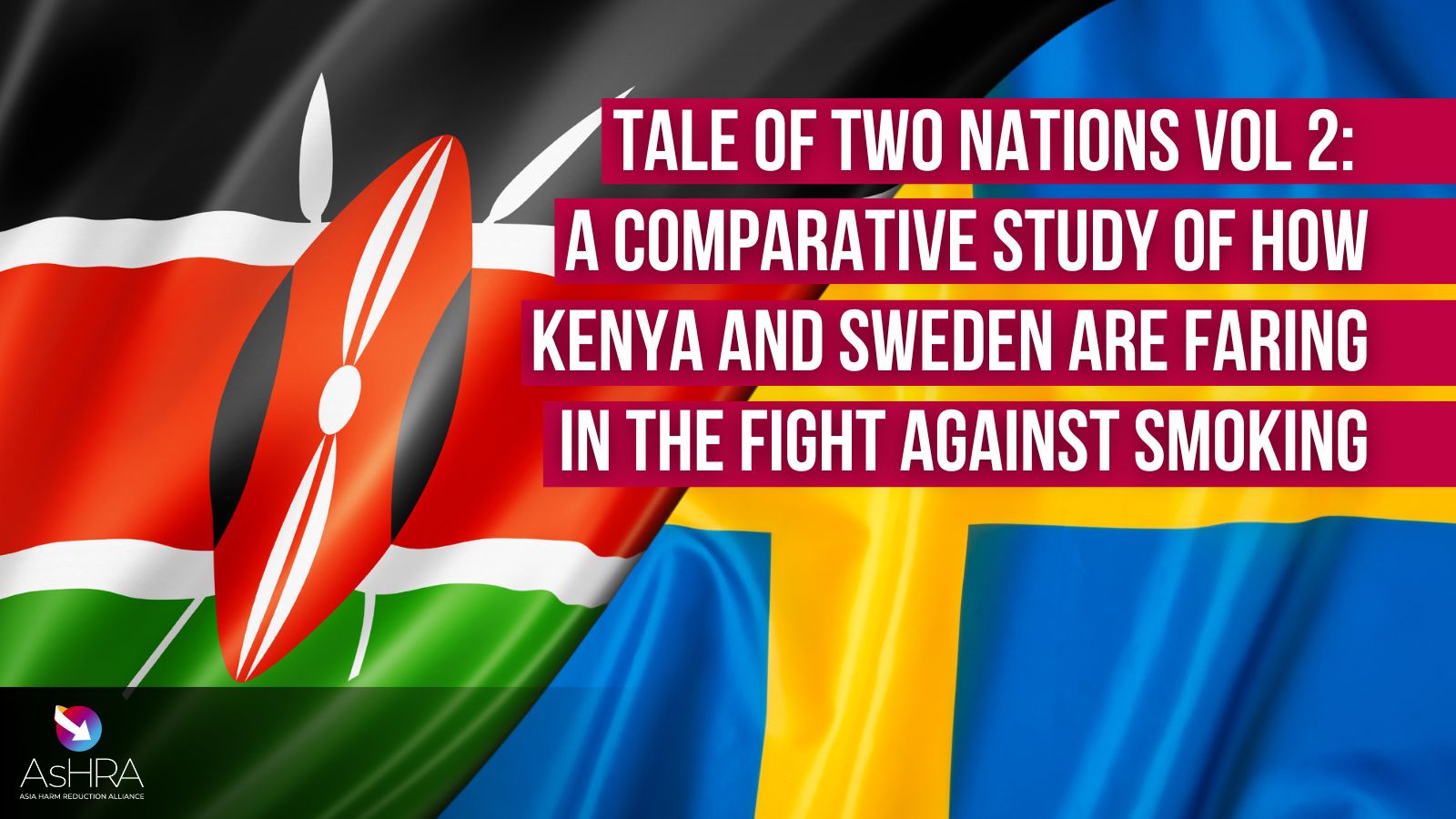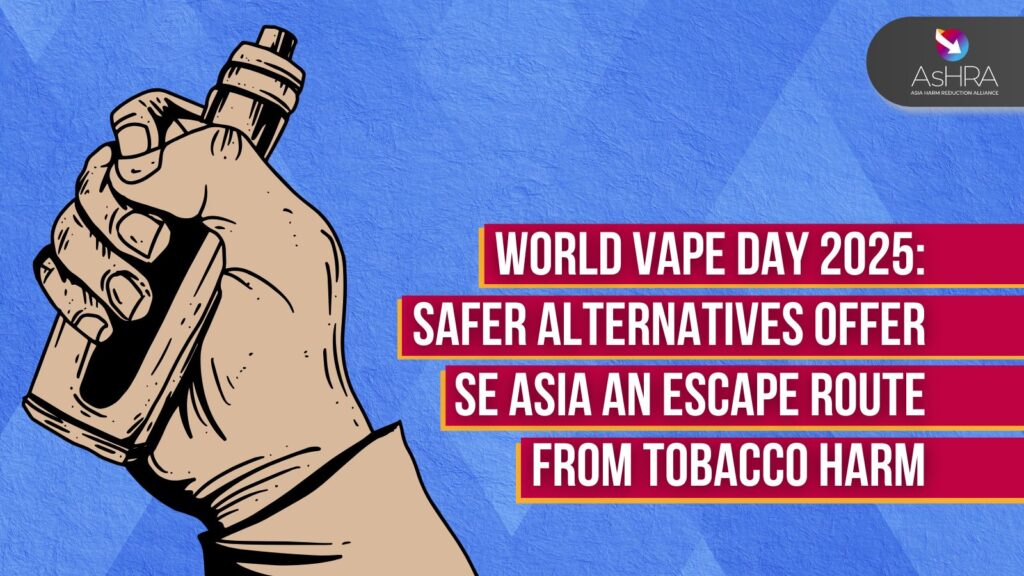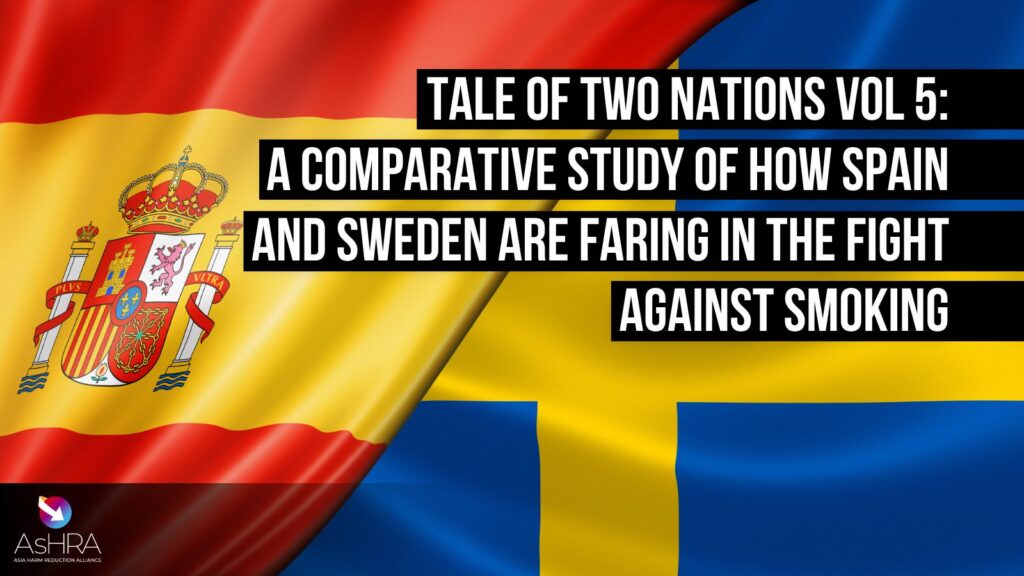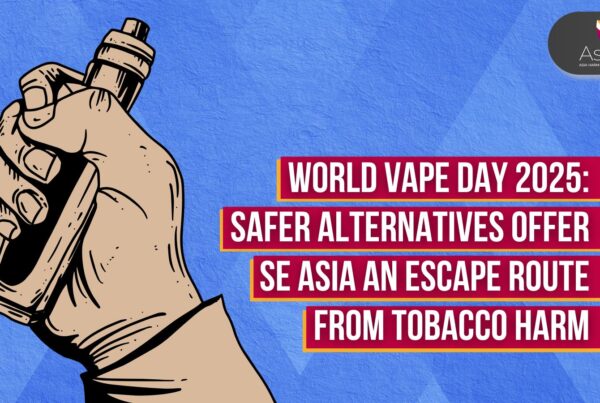Misguided restrictions on safer alternatives to cigarettes threaten to perpetuate the smoking crisis that kills 12,000 Kenyans annually, according to a major new report.
The landmark study, Tale of Two Nations: Kenya vs. Sweden, reveals how Sweden’s harm reduction approach has driven smoking rates to record lows, while Kenya’s proposed regulations could hinder progress in reducing smoking-related deaths.
Sweden has slashed its smoking rates by making safer alternatives – such as snus, nicotine pouches and vapes – accessible, acceptable and affordable for adults. Official figures released in November showed that the number of Swedish-born over-16s who smoke cigarettes has dropped to 4.5% , well below the global benchmark for smoke-free status.
Meanwhile, in Kenya – where male smoking rates are THREE TIMES HIGHER than in Sweden – strict new laws are proposed to block access to these reduced-risk alternatives, despite overwhelming evidence of their role in helping people who smoke to quit their habit. “Kenya is at a crucial turning point,” said report co-author Joseph Magero, chairman of the Nairobi-based Campaign For Safer Alternatives (CASA).

“Sweden’s success proves that giving adults who smoke better alternatives saves lives. If Kenya bans or restricts these products, it risks keeping smoking rates high and preventing thousands from making the switch to safer options.”
The report, produced by Smoke Free Sweden in conjunction with CASA, makes key recommendations to significantly reduce the deadly toll of smoking in Kenya, including:
- Adopt a harm reduction approach – Kenya should follow Sweden’s model by promoting safer nicotine alternatives instead of banning or over-regulating them.
- Implement proportionate regulations and taxation – Policies should distinguish between combustible cigarettes and reduced-risk alternatives, ensuring safer products remain accessible to adults who smoke.
- Educate the public on harm reduction – Clear, science-based communication is needed to inform health professionals and consumers about the lower risks of nicotine pouches, snus and vaping compared to cigarettes.
Smoke Free Sweden leader Dr. Delon Human, a global harm reduction specialist, said: “Kenya’s male smoking rate of 14.7% is three times higher than Sweden’s 4.9%, demonstrating the need for progressive harm reduction policies.
“Instead of limiting access to less harmful alternatives, Smoke Free Sweden urges Kenyan policymakers to take an evidence-based approach that prioritises public health.
“As Africa faces rising smoking-related health burdens, the findings of this report serve as a wake-up call. If Kenya embraces harm reduction, it could drastically cut smoking rates and prevent thousands of premature deaths. “
The full report is available on Smoke Free Sweden
Related Posts
 Time to support Filipino vape law, not relitigate it
Time to support Filipino vape law, not relitigate it
Time to support Filipino vape law, not relitigate it
 Greens’ Plan To Legalise Nicotine Vapes Lauded
Greens’ Plan To Legalise Nicotine Vapes Lauded
Greens’ Plan To Legalise Nicotine Vapes Lauded
 Taiwan Vaping Ban Disappointing For Its Many Smokers
Taiwan Vaping Ban Disappointing For Its Many Smokers
Taiwan Vaping Ban Disappointing For Its Many Smokers
More about
Alcohol Harm Reduction
More about





